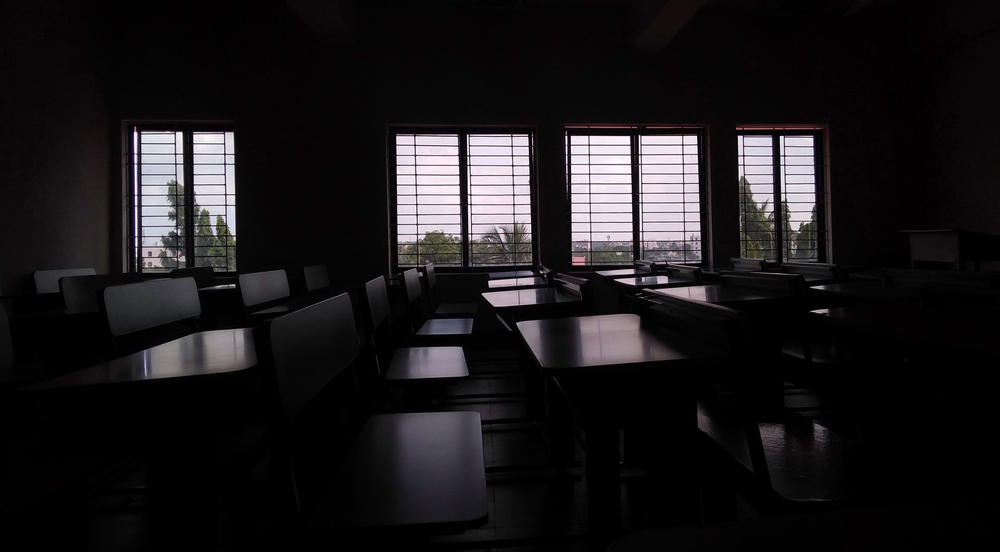A few weeks ago, cultural critic and jazz musician Ted Gioia wrote a must-read essay that lays out today’s dismal cultural situation. His thesis: “2024 may be the most fast-paced—and dangerous—time ever for the creative economy.”
He elaborates on this claim: “We’re witnessing the birth of a post-entertainment culture.” A few decades ago, creators could take one of two paths: art (high-brow content for refined audiences to savor and critique) or entertainment (low-brow content for hoi polloi to consume and enjoy). In the past decade or so, most art has been taken over by entertainment. Gioia illustrates this with an infographic of a big fish swallowing a smaller fish.
However, the food chain doesn’t stop there. Behind the fish representing entertainment is an even bigger fish that Gioia labels “Distraction.” Ever since COVID, people have been ditching conventional entertainment (movies, TV, pop music) in favor of bite-size videos featured on most social media. Instead of watching the latest Marvel film or listening to the new hit by Taylor Swift, people today endlessly scroll on TikTok, Instagram, or YouTube.
This spells disaster not only for artists and entertainers hoping to find and retain audiences but for the population at large, many of whom are plunging into full-on addiction to their screens. Gioia echoes the observations of many parents and teachers today: “I see those sad-eyed junkies, hooked to their devices, wherever I go. And even their facial expressions convey that haggard strungout look.” While this sounds dramatic, it’s nevertheless true for so many young adults: most of them are wedded to their phones and lack the capacity to enjoy basic human goods.
The disturbing trend Gioia describes easily extends to realms beyond the culture. This is something that teachers like me see in education as well. As it happens, there’s a neat parallel to Gioia’s four-fish infographic (Addiction > Distraction > Entertainment > Art) in most of today’s K-12 campuses: Vegetative Learning > Digital Learning > Engagement Learning > Traditional Learning. And for anyone wondering what this portends for the country, it will be nothing short of a future Dark Age.
As was the case with creators, teachers in past decades have been faced with two choices: educating students with challenging material and frequent grading or engaging them with fun projects and participation grades. The “old school” teachers (like me) who loved their subject and wanted to boost test scores mostly opted for a traditional style of learning. The more temperamentally progressive teachers who wanted to keep their students happy and ensure they didn’t worry about grades would focus on engagement. On most campuses, the old school teachers tended to gravitate toward teaching advanced tracks, whereas the engaging teachers usually preferred the regular or remedial tracks.
This dynamic shifted about 15 years ago, however, as standardized testing diminished and grade inflation consequently increased—the engagement fish started eating the traditional fish. When students could be passed on without repercussions (since most of them had no test or exam to hold them accountable), the old school teachers who made their students work hard had less value and became the “bad cops” of the campus. By contrast, the more engaging teachers upset fewer parents and became the “good cops” whom the students preferred. Over time, the old school teachers became an endangered species, with many of them either retiring, joining their fellow nerds at one of the new classical schools, or leaving the teaching profession altogether.
But as with the culture, the food chain didn’t stop there. Soon a bigger fish appeared: the Digital Learning fish. Although COVID turned this fish into an alpha predator taking over K-12 classrooms, the devolution actually began years earlier when the issuing of Chromebooks and iPads to students was all the rage. Equipped with this new technology, students would supposedly become “21st century” and “future-ready” learners. Teachers were immediately encouraged to go “paperless” and “incorporate digital tools” to further jazz up their lessons.
Owing to the upheavals in response to COVID, some schools (usually low-performing ones) entered yet another, dystopian phase: Vegetative Learning. Effectively speaking, students no longer did actual work, received actual grades, or had to be physically present in the classroom. Rather, they would hang out at home and just sit quietly, playing on their computer or phone. Grades and attendance were given for logging in: this is what constituted “learning.” Beyond this, students usually spent hours each week with their earplugs in, scrolling mindlessly through social media.
Although this final stage of learning was far more prevalent during the pandemic when schools were forced to experiment with virtual learning, Vegetative Learning is still present in many classrooms today, at least in part. In my experience, it has definitely become commonplace for core teachers to abridge their lessons and let students spend half the period playing on their phones or allow generous 30-plus-minute “brain breaks” between activities to do the same. I have also observed many elective classes go into full Vegetative Learning mode for weeks at a time. Worst of all are the campuses pioneering pedagogical gimmicks like Project Based Learning where students are free to wander the building unsupervised and don’t receive conventional grades or regular instruction.
And all this is happening in highly rated, well-funded suburban school districts. Urban district are almost certainly worse.
Because of pushback from parents and teachers, however, this final phase has yet to prevail on all campuses. Unfortunately, this pushback is coming primarily from people still invested in Engagement Learning. Their concern isn’t to restore rigor to the classroom but to reduce some of the social and emotional pathologies afflicting so many students. As such, they usually hold out hope that technology can facilitate learning someday, not inhibit it as it does now.
Of course, the time for these half-measures has long since passed. The Engagement Learning fish is in the process of being fully swallowed by the Digital Learning fish, which is now seeing the Vegetative Fish behind it grow bigger and hungrier. For anyone concerned about Gen Z, the generation that stands to suffer the most from these changes, and the imminent competency crisis threatening to cripple the nation, it’s time to return to basic educational principles.
Yes, that means following the example of other Western countries, like France and the U.K., and prohibiting smartphones from all school campuses. As Gioia points out, it’s more accurate to see the smartphone as an addictive drug with the potential to ruin a person’s life and not as some helpful tool that enhances the learning experience.
Additionally, there should be harder testing and more of it. If something isn’t tested, it usually isn’t taught—just think of the typical foreign language or PE class. Today’s bleak situation materialized when the old school teachers were turned into the bad guys and thanklessly ushered out. From then onward, the whole purpose of school changed from educating youths to keeping them busy.
Finally, parents will need to help with all this. That means doing the hard thing and taking away the smartphone (or severely limiting its functionality) with their “screenagers.” As any parent or teacher who has tried this can attest, the first few weeks will be rough. Once again, it’s important to remember that they are doing the equivalent of taking away an addictive drug. Resentment, withdrawals, and relapsing will be parts of the process.
Although I remain hopeful that the current trends can be reversed, I’m enough of a realist to know this will take time and probably get worse before it gets better. As my friend and fellow teacher-writer Jeremy Adams has written, K-12 teachers are the canaries in the proverbial coal mine, the first ones to see the future through their work with upcoming generations. Right now, what we’re seeing doesn’t bode well—a whole generation of sad, helpless addicts unable to take care of themselves, let alone others. Nevertheless, we can always choose a better path.

